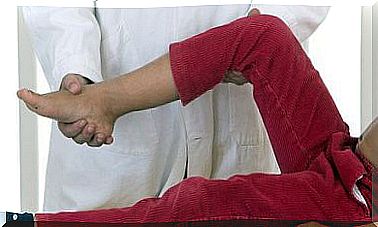Congratulate In Public And Correct In Private, But Without Hurting

Paulo Freire, a famous 20th century educator, used to say that educating should always be an act of love, never pain. However, and this is something we see very often, there are those who correct their children in the least opportune way: loudly and in public, exposing that child and intensifying negative emotionality even more.
We all know that sometimes, our children do not behave as they should when we go out with them. A word out of place, speaking out loud annoying others or touching what they should not, often makes us nervous and angry with them. It is necessary to stop this behavior and we do it.
It is not, therefore, a question of being permissive. It is about knowing how to stop something that is wrong but in a wise, appropriate, firm and respectful way. The reproach and correction we will do at home and in private, without the need for public and always without causing harm.
It is enough to understand one thing. Nor do we like to be noticed in front of anyone. Let them yell at us, tell us that ” you can’t get out of the house, you have no remedy, you are rude .” What do we gain from these phrases, from these expressions?
What we get is to feed even more negativity and a vicious circle where both the child and ourselves feel even worse . It is not appropriate, we suggest you reflect on it.

Correct in public aggressively: bad pedagogy
Let’s think for a moment about a situation that occurs too many times. Teachers and professors who sometimes correct or attract the attention of their students in the worst possible way. Phrases such as “you are lazy”, “you will never pass this course” or “you are a denial of mathematics” are examples of bad pedagogy.
- Expressions that disqualify a child in public create marks on their emotional tissue.
- In the long run it can become a self-fulfilling prophecy. (Why am I going to try my best if my teacher says I’m a math denier?)
- A public disqualification causes others to label us the same way (if the teacher says Sara is lazy, she is).
A child can be called upon to shut up, to be quiet. After the mandate, we will indicate “that later we want to speak with them in private”. There is no need to say more in public.
Later, as many good teachers do, they will be given improvement strategies. They will be motivated to behave better, and in turn, an adequate closeness will be created where the child can express their thoughts and needs.

The parent who corrects aggressively
The father or mother who screams and who corrects aggressively does not apply Emotional Intelligence. It is carried away by negative emotion to the point of intensifying and generating a traumatic feeling in the child.
- Correcting in public with anger will generate anger in our children to the point of achieving the opposite of what we intended.
- Whoever corrects with screams generates fear. This is not a way of educating and that imprint brings unwanted consequences in the child’s development: low self-esteem, insecurity, frustration, aggressiveness …
Correct in private, praise in public
When was the last time you praised your son or daughter in public? Maybe today, because it is very possible that you also know how important it is to show our children that we are proud of them before everyone around us. It is something that we also do in private, but when we promote it in front of other people it acquires a special connotation for the little ones.
Let us now look at a series of aspects that we must remember.
Never compare your children with other children. Make them feel like they are the best!
There are fathers and mothers who make the mistake of saying phrases like the following to their children as if they were not listening to them. “Your son is smarter than mine”, “Of all the children I have, this is the slowest for everything, I don’t know what I’m going to do with him.”
Avoid these expressions. You have to turn them around: “My son is special, he is the best in the world”, “My son is more handsome and smarter every day, he will go where he wants.

Make use of the “positive” correction
We will correct privately and appropriately, closely and empathetically. Above all, avoid categorizing or being fatalistic (you will never learn to read!).
Ideally, make use of the positive correction:
- If you try a little more you will surely succeed. I am here to help you.
- You have behaved badly, but I am sure that you can show me how good and responsible you are.
- I know that you have been wrong, that you have done something wrong, but I trust you and I know that you are going to do it perfectly.
- I want you to understand that what you have done is not right. Now, mom is going to tell you how to do it better so you can show me how amazing you are.
Put these simple tips into practice and always remember to educate without fear. Guide with affection, respect and love to give the world happy children.
Images courtesy of Sonja Wimmer









